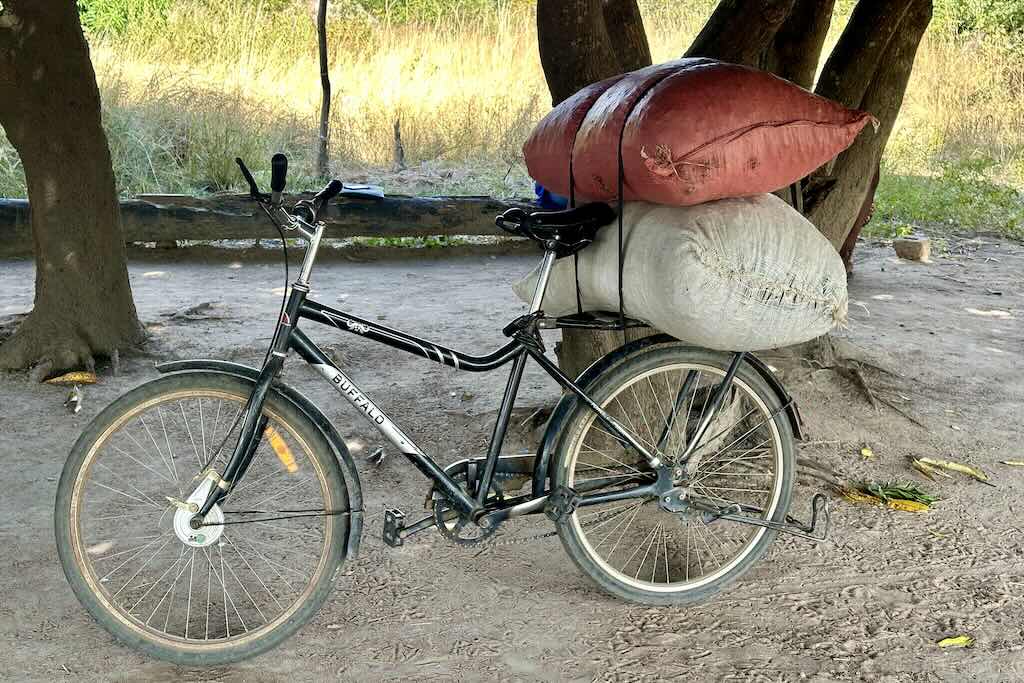Autumn Gear Guide
Find inspiration in our Gear Guide that will keep you out on your bike through wind or rain.
Download NowA new study by World Bicycle Relief shows the incredible and positive change that can come with investment in bicycles. If you’ve ever hopped on your bike to beat traffic or just get some fresh air, you’ve probably felt the freedom that comes with two wheels. But imagine if a bike wasn’t just a convenience—it […]
A new study by World Bicycle Relief shows the incredible and positive change that can come with investment in bicycles.
If you’ve ever hopped on your bike to beat traffic or just get some fresh air, you’ve probably felt the freedom that comes with two wheels. But imagine if a bike wasn’t just a convenience—it was a lifeline. In rural Zambia, that’s exactly what bicycles have become, thanks to a groundbreaking study by World Bicycle Relief (WBR) and IDinsight.
This new research, conducted over the course of a year, reveals how bicycles can revolutionize daily life for people in underserved communities. It’s not just about getting from point A to point B; it’s about opening doors to healthcare, income opportunities, and a better future—especially for women.
In many parts of rural Africa, transportation isn’t just hard to come by—it’s practically nonexistent. In fact, 70% of people in rural Africa face “mobility poverty.” They’re forced to walk long distances to access basic services like healthcare, schools, and markets. For many, a simple trip to the clinic could take hours on foot.
That’s where bicycles come in, and WBR’s latest research set out to prove what cyclists have always known—bicycles can change lives.
“This research highlights the transformative impact that bicycles can play in overcoming mobility poverty, inequality, and systemic challenges faced by rural communities,” said Dave Neiswander, CEO of World Bicycle Relief. “The study findings clearly demonstrate how providing reliable transportation with bicycles unlocks access to healthcare, education, and economic opportunities—fundamental elements that allow individuals and communities to thrive.”
The study took place in the Mumbwa District of Zambia, where 1,227 local group members and 261 community health workers participated. Half were given bicycles, while the other half went without—at least until the trial was over. By comparing the two groups, researchers got a clear picture of just how much of an impact bikes could make.
•Income Gains: Households with bicycles saw their average monthly income rise by 43% compared to the control group. Women, in particular, benefitted the most, seeing their earnings jump by 50% over their peers who didn’t have bicycles.
•Better Healthcare Access: Bicycles meant more people could get the healthcare they needed. Recipients were 36% more likely to access care, and community health workers with bikes served 63% more households.
•Business Booms: Local business owners with bicycles saw their monthly revenue increase by a whopping 53% compared to those without bikes.
•Women on the Move: For women, bicycles were a game-changer. They were 60% less likely to cancel trips outside their communities, giving them greater freedom, life satisfaction, and decision-making power at home.
The study also revealed that during one of Zambia’s worst droughts, families with bicycles fared much better than those without. Bicycles helped maintain household income and consumption levels, showing just how crucial mobility is when climate shocks hit.

World Bicycle Relief
For Jeff McManus, senior economist at IDinsight, the study’s significance goes beyond Zambia.
“This RCT is a landmark study for understanding the role of mobility in addressing poverty, inequality, and building resilience in rural communities,” McManus said. He noted that the research builds on earlier studies showing the wide-ranging impact of bicycles on education, healthcare, and economic stability.
“The findings, together with findings from an earlier RCT of the impacts of giving bicycles to schoolchildren in Zambia, provide compelling evidence that bicycle interventions have far-reaching impacts on economic stability, healthcare access, and education outcomes, especially in rural, marginalized communities,” McManus added. “It is a privilege to partner with World Bicycle Relief on such an important project that has the potential to inform strategies for improving livelihoods in poor and marginalized communities.”
The takeaway from this research is clear: bicycles are more than just a means of transport—they’re a tool for economic and social empowerment. As Neiswander puts it, “With this research, World Bicycle Relief is uniquely positioned to lead scalable, sustainable mobility interventions that can be integrated into broader development programs focused on education, healthcare, and economic opportunities.”
Now, WBR is calling on international development partners, donors, and policymakers to invest in these kinds of mobility solutions. If you’ve ever wondered how something as simple as a bicycle can make a difference, this study provides the evidence.
For those of us who ride regularly, whether it’s for fitness, fun, or our daily commute, it’s easy to take our beloved bicycles for granted. But this study is a reminder of its power. In places like rural Zambia, a bicycle isn’t just a way to get around—it’s a pathway to a better life.
So next time you saddle up, think about the freedom beneath your wheels and the impact that same freedom could have for someone across the globe.
For more information on the study and how you can support World Bicycle Relief, check out World Bicycle Relief.
Find inspiration in our Gear Guide that will keep you out on your bike through wind or rain.
Download Now
Leave a comment